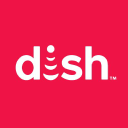How Dish Network Gains From Its With Wireless Spectrum
The FCC is getting close to granting Dish Network (NASDAQ:DISH) permission to operate terrestrial networks for offering wireless broadband services, however it could impose certain restrictions that may not allow for optimal performance. [1] The essence is that there is still a lot of uncertainty around how exactly Dish Network will use its acquired spectrum. Will the company sell it for a premium and invest the proceeds in improving its current business? Will it build out its own infrastructure and network? Or will it partner with a third party and host its spectrum on its infrastructure? We have tried to answer some of these questions before but given the recent development, these warrant us revisiting the issue.
See our complete analysis for Dish Network
What If Dish Network Sells The Spectrum?
- With Echostar Merger Approaching, What To Expect From Dish’s Q3 Results?
- Can Dish Network Stock Return To Its Pre-Inflation Shock Highs?
- Dish Stock Has Big Upside Potential To Its Pre-Inflation Peak
- How Will The Cyber Attack Impact Dish’s Q1 Results?
- Is Dish Network Stock A Buy Despite Many Headwinds?
- Will Dish Network Stock Continue To Underperform?
There is a looming spectrum crunch in the U.S. wireless industry given the increasing data needs of mobile customers. Growth in smartphones and tablets along with improved wireless data speeds has stimulated data usage, and wireless carriers have been investing in their infrastructure to address this need. As a strategic and tactical move, Verizon (NYSE:VZ) bought AWS spectrum owned by some cable companies earlier this year for $3.9 billion. [2] This indicates that Dish is sitting on a gold mine, and the value of its spectrum will only go up.
Therefore, one option for the company is to sell the spectrum at a significant profit and invest the proceeds in its current business. This profit could be substantial enough to be invested in new satellite launches or increasing their capacity to support future HD programming. Additionally, the investment could be made in Blockbuster’s content to make it more lucrative to subscribers. This can help the company improve the value of its service and better compete with bundled service providers such as the cable and telecom companies. Dish certainly lacks the bundling advantage and the loss of certain key distributors to DirecTV (NASDAQ:DTV) hasn’t helped either.
What If Dish Network Builds A Wireless Service?
If Dish Network eventually builds a wireless service, it can either use a third party infrastructure and host its spectrum on that, or build everything on its own from scratch. The latter option is more risky since Dish does not have any experience in this field and additional capital expenditures might lead to investor skepticism. Let’s assume that Dish goes with the option of partnering and hosting its network on a third-party infrastructure. Dish might enter a revenue or profit sharing agreement with the company and market the wireless service under its own brand name.
What could be the pricing? The pricing can be estimated by looking at what ViaSat is offering. ViaSat offers satellite broadband and charges $50 per month for 12 Mbps service with 7.5 GB data cap. [3] For 25 GB data cap, the pricing is much higher at $130 per month. [3] Given that in urban areas, the broadband service is available from cable and telecom companies at much more attractive terms, this satellite broadband service will find its value in rural and far out areas. Given the lower spending capacity of the rural population, the most likely plan that they’ll go for is around $50 per month in our view.
We can assume this to be benchmark “revenue per broadband subscriber” for Dish Network’s service, although bundling with its pay-TV service is likely to lead to lower pricing. Dish could earn an incremental $2 billion in revenues if it can gain 3.5 million broadband subscribers (25% of its current pay-TV subscriber base). However, the company will need to share a substantial portion of profits with the infrastructure provider, leading to lower margins on broadband.
The value of such an approach not only comes from incremental profits but also from the fact that the bundling of satellite broadband could lead to better pay-TV subscriber trends and help Dish compete against rival DirecTV.
Our price estimate for Dish Network stands $36, roughly in-line with the market price.
Understand How a Company’s Products Impact its Stock Price at Trefis
Notes:- Report: FCC may restrict part of Dish Network’s spectrum holdings, FierceWireless, Nov 19 2012 [↩]
- What $3.9 billion Verizon/cable spectrum deal means to you (FAQ), CNET News, Aug 25 2012 [↩]
- ViaSat prices satellite broadband plans, calls them Exede, The Verge, Jan 20 2012 [↩] [↩]
